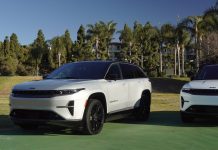The Nautilus might just be enough to finally get people into Lincoln dealerships.
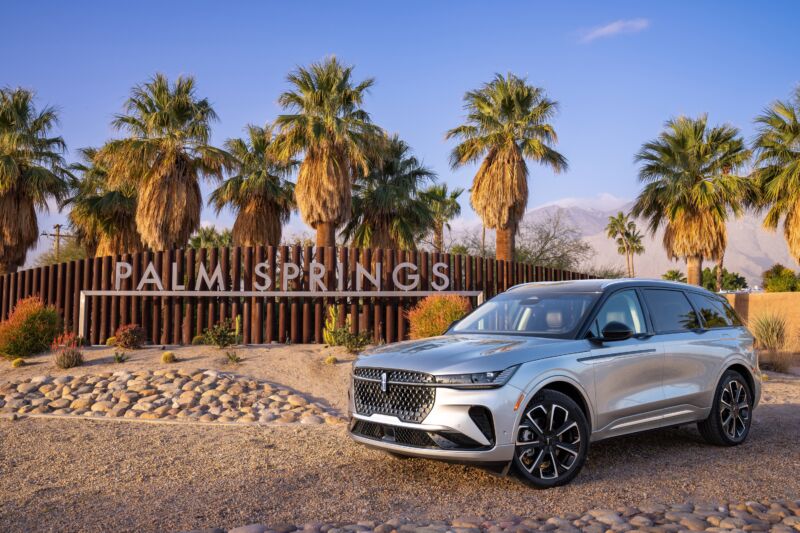
PALM SPRINGS, Calif.—Lincoln is one of those car companies that for years will give the impression that the people in charge are asleep at the proverbial wheel and then all of a sudden will debut a total knockout. It’s happened a few times throughout the brand’s long history, most recently with the fourth-generation Navigator. The introduction of the 2018 Navigator also sparked a huge overhaul in design and technology for the brand that catapulted it from “decent free rental car upgrade” to a maker of luxury SUVs that people might want to buy. The 2024 Lincoln Nautilus is just such an SUV.
In the hierarchy of Lincoln models, the Nautilus sits neatly between the Aviator and the smaller Corsair. It’s arguably one of the best looking of the current crop of Lincolns, and it’s positioned to compete with the likes of the Lexus RX, the Cadillac XT6 and Volvo’s XC60, among others. But does it actually compete? Or is it simply another car for the Enterprises and Hertzes of the world?
The 2024 Nautilus is available in two flavors: a purely internal combustion-powered version with a 250 hp (186 kW) turbocharged inline-four that also puts out 280 lb-ft (380 Nm) of torque and is paired with an eight-speed automatic transmission; and a much more interesting hybrid version, which offers up 310 combined hp (231 kW) that’s paired with a CVT transmission. The Nautilus is only available with all-wheel drive.
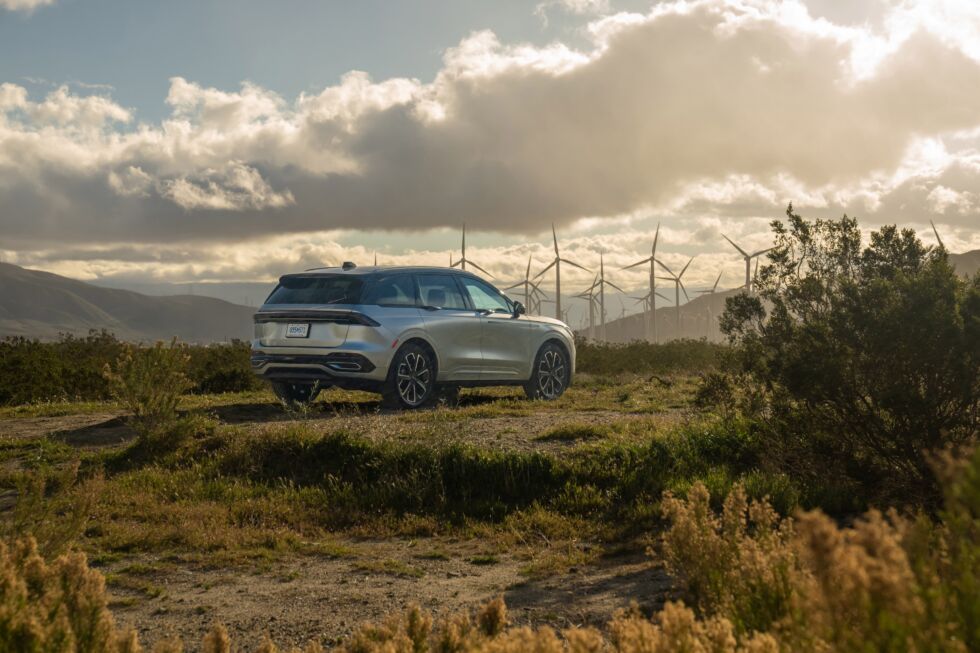
The hybrid variant is a traditional series hybrid, rather than a plug-in hybrid as we’ve seen on the Corsair. Honestly, the lack of a plug-in variant of the Nautilus is kind of a bummer because its character would suit the Nautilus so well, but like the middle-aged sad dad band sang at my wedding reception, you can’t always get what you want. Still, between the two variants, the hybrid is the one to get for a few reasons, and it’s only a $1,500 upcharge versus the gas-only model.Advertisement
In addition to the power and torque increases offered by the hybrid system, the overall efficiency boost is welcome. The Nautilus Hybrid is good for an EPA-rated 30 mpg (7.84 L/100 km) city, 31 mpg (7.6 L/100 km) highway for a 30 mpg combined. The gasser only manages 21 mpg (11.2 L/100/ km) city, 29 mpg (8.1 L/100 km) highway, and 26 mpg (9 L/100 km) combined. The hybrid system is smooth and well-integrated, too, and I find that an ignorable hybrid drivetrain is a good hybrid drivetrain.
The HEV differentiates itself in other ways, too. Where the ICE model makes do with a non-adjustable suspension, the hybrid gets continuously adjustable dampers and, as a result, a very smooth and Lincoln-appropriate ride. Those dampers are able to be set into a handful of drive modes. These are labeled Normal, Conserve, Excite, Slippery, and Deep Conditions.
There is a noticeable difference between the settings both in the suspension and the accelerator calibration, but it’s not so dramatic that you wouldn’t, say, put it in “Deep Conditions” so you can make a Dune joke on Instagram based on the little animated digital desert planet that’s displayed on the screen and then forget to change it back afterward. Not that I know from experience or anything. Basically, the suspension is a bunch of levels of softness that go from newborn kitten fluff to Ikea couch pillow, so don’t expect corner-carving prowess even in the slightly misleading “Excite” mode.
The Nautilus’ power steering is electric and pretty light in all settings, and the braking system feels smooth and as strong as you’d want it to be when panic-stopping the 4,517-lb (2,049 kg) hybrid. Nothing feels like an afterthought here, apart from the borderline shocking levels of road noise transmitted through the Nautilus’ great big wheels and low-profile tires. The Black Label we tested was on 22-inch wheels and, while not a dealbreaker, the tires make a lot of noise. If I were buying one, I’d get it with the smallest wheels possible and hope that taller sidewalls restore some of the Nautilus’ potential for serenity.
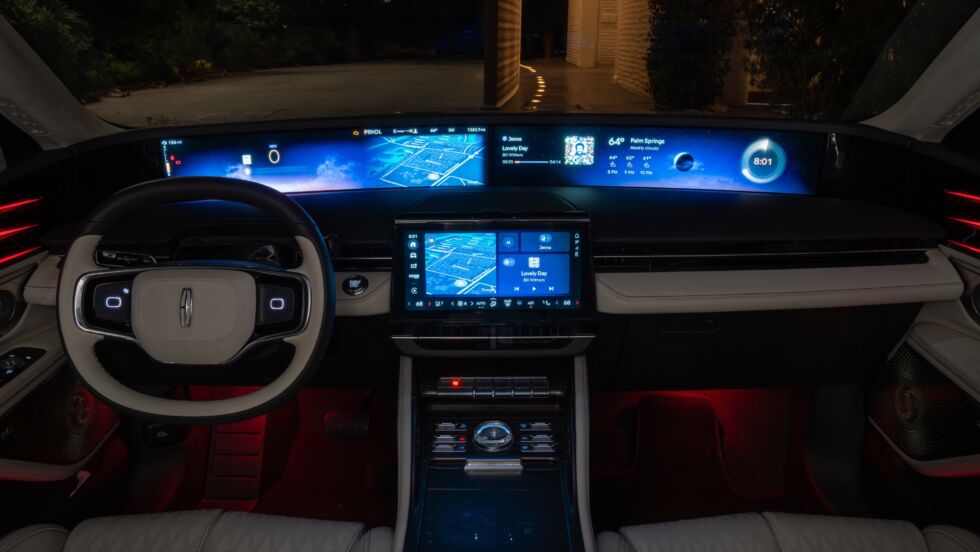
The Nautilus’ exterior styling is great, but it’s the interior that really knocks things out of the park, with a few small exceptions. First, the almost obscenely adjustable seats in my Black Label test vehicle are incredibly comfortable. These are aesthetically and functionally very similar to those found in the Navigator, and they’re gorgeous. Next is Lincoln’s huge wraparound dash screen. It’s one of the best integrations of this kind of screen and works well as both an instrument cluster and an information screen. The ability to send different information from the smaller touchscreen in the center of the dash to the bigger screen with just a drag is cool, too.
Interior materials are lovely, with plenty of soft-touch surfaces, a really pretty parquet-like wood insert on the dash, and a pleasantly squishy steering wheel. I say wheel, but it’s not even close to round. It’s more of a rectangle, kind of like the C8 Corvette’s wheel but more exaggerated. It’s a little odd at first, but it takes very little time to get used to, and in a car like this, it makes some degree of sense.
Interior room is good, with front seat occupants getting 39.6 inches (1,006 mm) of headroom (39.1 inches/993 mm in the Black Label model) and 43.5 inches (1,105 mm) of legroom if the seat is all the way back. Your author is 6 feet, 4 inches (1.9 m) tall and has ample room, with a reasonable amount of room left for rear seat passengers. Speaking of those rear seaters, they get 39.8 inches (1,011 mm) of headroom in lesser trims or 38.4 inches (975 mm) in the top-tier Black Label and 43.1 inches (1,095 mm) of legroom. Cargo capacity is reasonable at 35.2 cubic feet (997 L) behind the second row in Reserve and Black Label models (36.4 cubic feet/1,031 L in the Premiere) and 68.8 cubic feet (1,949 L) and 71.3 cubic feet (2,109 L), respectively, with the second row of seats folded.Advertisement
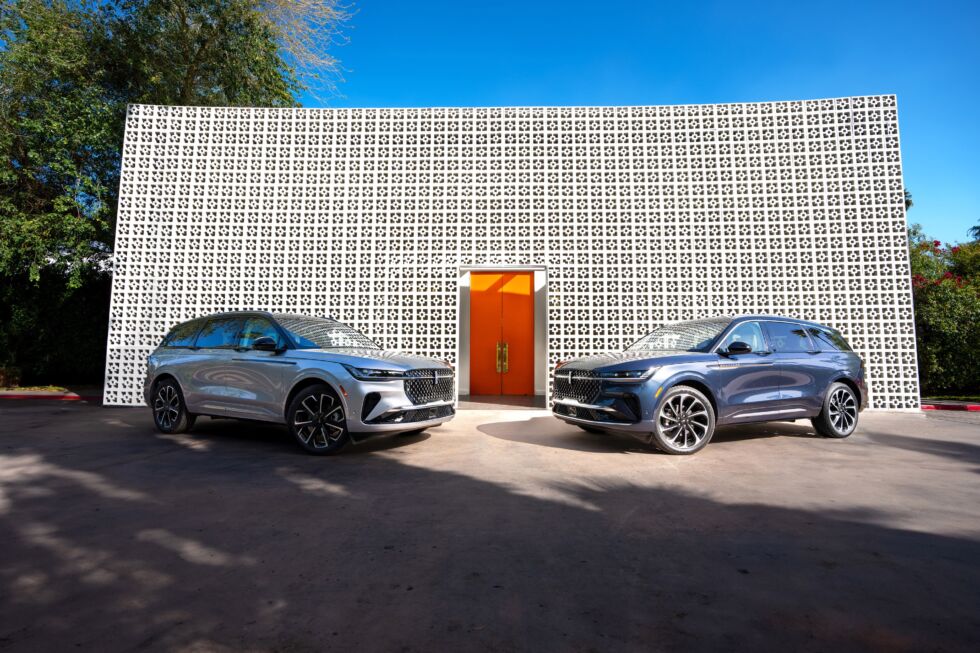
Safety tech is a big seller in this market segment, and Lincoln hasn’t skimped on the Nautilus. Lincoln and Ford’s excellent BlueCruise hands-free driving assistant is along for the ride and, in my limited experience, works as well as it does in any other product so equipped from the Blue Oval. If you’re unfamiliar with BlueCruise, it uses driver monitoring cameras and mapped roads to allow hands-free driving on highways, including automatic lane changes. It’s more or less on par with GM’s SuperCruise system.
Comfort and convenience tech is here in spades as well. Lincoln is especially proud of its new line of “Digital Scents,” which, like the scent diffusers we’ve seen from German brands, offers a handful of different scents that you can choose from and a setting in the infotainment menus letting you choose how strong you want it to be. I find these to be universally nauseating, but if you buy a Nautilus with the $5,775 Premier II package, you can go bananas with them to your heart’s content. The name “Digital Scents” is extremely dumb, though, and I wish Lincoln had come up with something slightly more creative.
For its high-end branded audio system, Lincoln has partnered with Revel Audio to good effect. The system resolves well and has sufficient punch in the low end and clear highs, but the 28-speaker Revel Ultima system in the Black Label is not on par with a Lexus Mark Levinson system or a Jeep McIntosh system. Still, you could do a lot worse these days, and most buyers will likely be perfectly happy here.
At the beginning of this first drive, I talked about the Nautilus’ competition being predominantly American, Japanese, and, to a lesser extent, Swedish models. When compared to these, the Nautilus acquits itself well, but compared to offerings from BMW, Mercedes, Audi, or Porsche, it doesn’t really stack up; it simply lacks the engaging driving characteristics of a Macan, a GLE, or an X5. But with the most expensive Nautilus hybrid coming in at just $77,990, including a $1,595 destination fee, if you don’t care about performance, the Lincoln is a pretty great option.


